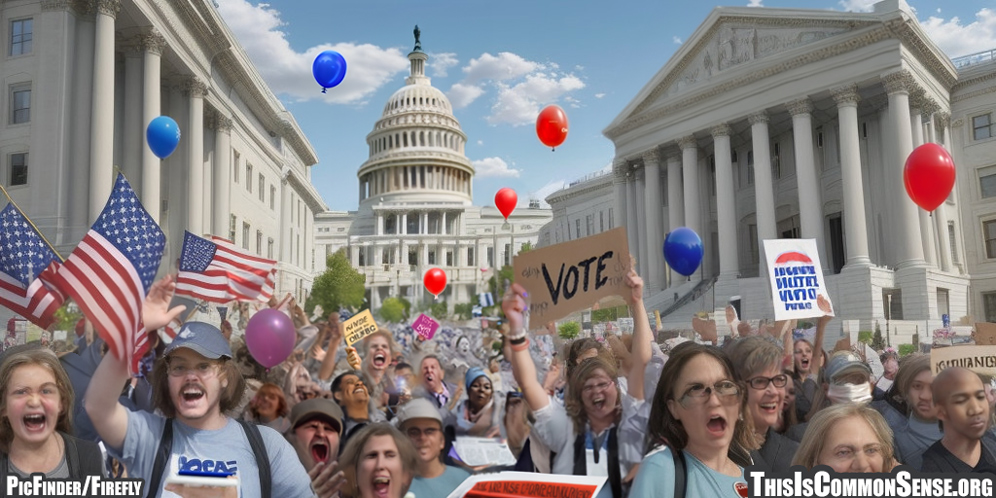Jose Barrios was “quite happy to hear we’re going to have more democracy, not less in the District of Columbia.”
Barrios, the president of D.C. Latino Caucus, was reacting to a federal judge’s ruling to toss out the legal challenge, brought by several city voters, to the D.C. Noncitizen Voting Act.
That underlying law, passed by the DC City Council in 2022, certainly puts the “more” into democracy, allowing anyone residing in our nation’s capital for 30 days, even if in the country illegally, to legally vote for mayor, city council and local ballot measures.
And I do mean “anyone.” China’s ambassador to the U.S. and other Chinese nationals working at their embassy are today eligible voters in Washington. Same for the FSB agents and other Russian nationals working out of their embassy.
Federal Judge Amy Berman Jackson dismissed the lawsuit on the grounds that plaintiffs “were simply raising a generalized grievance.” She elaborated: “They may object as a matter of policy to the fact that immigrants get to vote at all, but their votes will not receive less weight or be treated differently than noncitizens’ votes.”
I object to her poor choice of terms. “Immigrants” have been voting in this country for the last century and hopefully always will: By becoming citizens.
The judge’s ruling also highlights that who votes is a pretty fundamental constitutional question, one that voters should decide.
Yesterday, Idaho’s legislature voted to place a Citizen Only Voting Amendment on this November’s ballot — joining Wisconsin, Iowa, and Kentucky, which have similar amendments on the ballot.
Certainly, yes, bestowing the vote on foreign citizens residing in the city for 30 days is an expansion of democracy. But sometimes more is less.
So, let’s ask voters.
This is Common Sense. I’m Paul Jacob.
Illustration created with PicFinder and Firefly
See all recent commentary
(simplified and organized)
See recent popular posts

3 replies on “More Is Less”
Our nation suffers greatly for the lack of an intelligent, rational conversation about democracy. But we won’t get that conversation, because the people at the commanding heights and a great many other people don’t want us to have it.
Genuine democracy is often no more than the least wretched system that can be practically effected, and we only have use for it because our various inabilities to discern the right thing lead us into conflict.
But, beginning in the Progressive Era, the left has made a practice of confusing liberal values with democracy. Democracy, not individual liberty, was insinuated as the thing of fundamental value. For example, instead of acknowledging that the right to liberty of expression was something brought with each participant to society, freedom of speech was defended on instrumental grounds, as helpful to democracy.
Democracy was treated as sanctifying. Increasingly, whatever a plurality of the voters might choose was treated as legitimate ipso facto. And men could be enslaved and forced to kill and to die to spread democracy.
More recently, things have taken a still more dire turn, as the left no longer even uses “democracy” to mean democracy. For example, they claim to protect “democracy” when they try to prevent a very popular candidate from being a choice available to the voters, the attempt driven exactly by a fear that this candidate might get the largest share of votes.
Things are truly bizarre when admitted foreign agents — for that is who the diplomats of other nations are — are enfranchised even as an effort was recently made to prevent citizen voters from selecting the candidate whom they find least repulsive.
But, operationally, when said on the left, “more democracy” means increasing the power of the left. And their purpose in expanding or contracting the franchise is just that increase.
The Chinese ambassador is eligible to vote in DC? That makes no sense. The embassy, by international law, is not part of the US. For all intents and purposes, anyone living in the Chinese embassy is living in Chinese territory. Anyone working in the embassy who has diplomatic immunity cannot be considered an immigrant.
Yes, let’s ask US citizens who should vote, and only US citizens. If we have no borders and anyone can vote, we are not a country. Period.